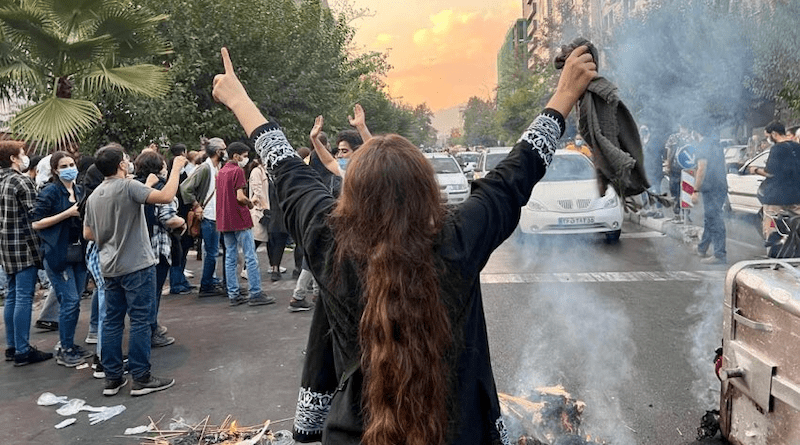Iran: Hijab Rules Of Regime Causing Division Among Its Ranks – OpEd
By Mahin Horri
The Iranian regime’s oppressive plan to suppress women under the pretext of “hijab and chastity” has faced tensions and difficulties. These tensions and difficulties indicate the failure of religious fascism against an explosive society, a society that is constantly seeking an opportunity for uprising and rebellion, a society in which women and girls are more oppressed than other marginalized groups, subjected to the tyranny of a reactionary regime. They are deprived of their most basic rights. Therefore, they are considered the most oppressed segment of society. They have participated and died in previous uprisings. Hence, the ruling regime in Iran sees suppression as the only solution to confront the uprising.
Regime’s oppressive plan, known as “Noor” (Light), has not only failed to subdue and subjugate these women and girls but has itself ignited rebellion and protest. The society’s support for women’s rights further complicates the regime’s situation. Now, protests and social resistance against this organized repression are hitting back at the heart of the regime.
On April 26, during Friday prayers in Tehran, Ahmad Khatami, a member of the Guardian Council, openly revealed a division among individuals and regime factions regarding the approach to dealing with women, referring to it as a “bipolarity.”
On April 26, TV Channel One broadcasted Khatami’s statements in which he said, “Please do not create bipolarity the issue of hijab and chastity! There are already enough polarizing issues. Let’s have a logical discussion! Let’s argue based on reasoning! Let’s not argue against each other. I feel that passionate supporters of the hijab, regardless of their personal preferences, are present. I swear that arguing against each other is not beneficial; arguing with each other does not solve the issue of hijab.”
This “bipolarity” and “arguing against each other” have even infiltrated the internal struggles within the regime, demonstrating that the issue is more complex than what is portrayed in regime-controlled media. In other words, the debate revolves around the fate of the regime itself, as it no longer enjoys the support of the Iranian society, particularly the youth.
On April 27, the state-run Setareh Sobh newspaper wrote, “Enemies are trying to pollute the minds of our youth with doubts and lies, and it is our duty to cleanse their minds from these impurities and doubts.”
Ahmad Alamolhoda, the Friday Prayer leader in Mashhad, alluded to another aspect of the failure of Khamenei’s oppressive plan. His remarks revealed the isolation of the regime in this matter.
Setareh Sobh quoted him, as saying, “Preserving culture comes at a cost. If men were to sit in a corner, be spectators, and say, ‘Mr. Friday Prayer Leader! Mr. Law Enforcement Officer! Come and fix this problem, it can’t go on like this!’ Brothers and sisters, the direction of the revolution in our society is realized through the empowerment of women.”
On the opposite side, some individuals and movements within the regime view the oppressive “Noor Plan” as a “spark of discontent” and issue warnings about the prospect of an uprising.
On April 27, Ebtakar newspaper wrote, “The result of any action that leads to the expansion of social tensions is not a condition for governance. Unfortunately, some are attempting to create tension in the country, and if a spark like the December 2017, October 2019, or Autumn 2022 incidents occurs, they label it as the enemy’s plan and scheme… The confrontations that take place under the pretext of dealing with unveiled women have in some cases resulted in widespread protests.”
This division, or as Alamolhoda puts it, “bipolarity,” is a deadlock that regime have encountered in implementing the oppressive plan against women and suppressing the uprising. And more should be expected.
It seems that they have hit the wall of an explosive and resilient society, particularly women’s resistance. It’s not without reason that they clash with each other.

